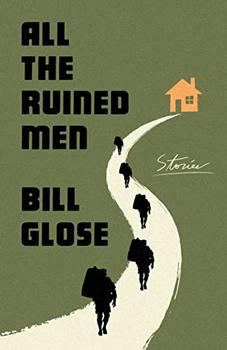Summary | Excerpt | Reviews | Beyond the book | Read-Alikes | Genres & Themes | Author Bio

While the economy and a new President have recently and powerfully captured the
attention of America and much of the world, the United States-led war on terror, as the
military actions following the September 11th attacks are often
called, seems to have fallen from the front of our collective consciousness.
Even without intervening worries like natural disasters and dwindling
investments, attention in our culture is hard to keep. There are many reasons –
some valid, some embarrassing – why we may have lost interest in these wars, but
where our distraction is caused by the disconnection of receiving information in
media snippets, The Forever War is the cure.
Think about it: can your family's struggles, your customs or your faith be
explained in a one minute sound bite? Can a nation's? Is there any organized
group you are acquainted with that is composed of entirely homogeneous people? So
it is with the U.S. military, where thousands of individual lives are
represented by one country, one official account of events. And so it is with
the citizens of Afghanistan and Iraq, countries with myriad people groups and
intricate, often violent, histories. Stories of individual participants, brought
to us in captivating detail by journalist Dexter Filkins, are the real story.
If there is any writer who can bring this convolution of conflicts, both in
Afghanistan and Iraq, back to our attention, it is Dexter Filkins. Filkins is an
award-winning reporter, a veteran foreign correspondent who is nearly fearless
in his pursuit of human stories. He was one of a small group of journalists and
aid workers who were in Afghanistan in the late 1990s. He returned to
Afghanistan after the 2001 attacks, staying through much of 2002 and then moved
to Iraq as the American invasion began in 2003. He stayed in Iraq for over
three years, recording (in 561 notebooks), writing – and surviving. The
Forever War gives us the opportunity to look over the shoulder of someone
who has been there, who has spoken to nearly every segment of Afghani and Iraqi
society and has witnessed the death, destruction, hope and absurdity of war.
The greatest strength of Filkins' book is that he shuns passing judgment. He is
a journalist above all, avoiding revealing nearly any personal opinion and
eschewing discussions of morality. His interviews, whether with warlords,
diplomats or military officers, are presented without political sway, freeing us
to join him in the role of careful observer. Filkins' apolitical account is not
without feeling, however. It quietly reveals wide ranges of emotion – rage,
apathy, boredom, panic – both in the author and in so many others caught in the
turmoil of a long war.
The book's dispassionate recounting of conversations and battles across
Afghanistan and Iraq also succeeds in illuminating the tangled cause and effect
of war. Filkins exposes, frankly and repeatedly, the confusion and chaos
experienced by both temporary and permanent residents of these countries.
Progress is slow and sometimes nearly futile. Rapidly changing alliances and
disrupted daily life turn survival into an intricate puzzle to be solved.
For anyone who despairs, as I have, of ever understanding the nations and events
which orbit around the date September 11, 2001, The Forever War is part
antidote, part exacerbation. As in the rest of life, the more we learn, the less
we really know. Yet, this is the great value of the book. Filkins shows us that
black and white ideologies – political, moral or otherwise – may be easy to
stand by in our comfortable, peaceful world, but they become much harder to
proclaim from the other side of the world, in the grey heart of war.
Interesting Links:
![]() This review was originally published in The BookBrowse Review in October 2008, and has been updated for the
June 2009 edition.
Click here to go to this issue.
This review was originally published in The BookBrowse Review in October 2008, and has been updated for the
June 2009 edition.
Click here to go to this issue.

If you liked The Forever War, try these:

by Rod Nordland
Published 2025
A legendary New York Times war correspondent delivers his unforgettable final dispatch: a deeply moving meditation on life inspired by his sudden battle with terminal brain cancer.

by Bill Glose
Published 2022
For readers of Phil Klay, Kevin Powers, and Tim O'Brien: Dramatic, powerful, authentic short stories of soldiers fighting a "forever war," in combat and back home.
Your guide toexceptional books
BookBrowse seeks out and recommends the best in contemporary fiction and nonfiction—books that not only engage and entertain but also deepen our understanding of ourselves and the world around us.